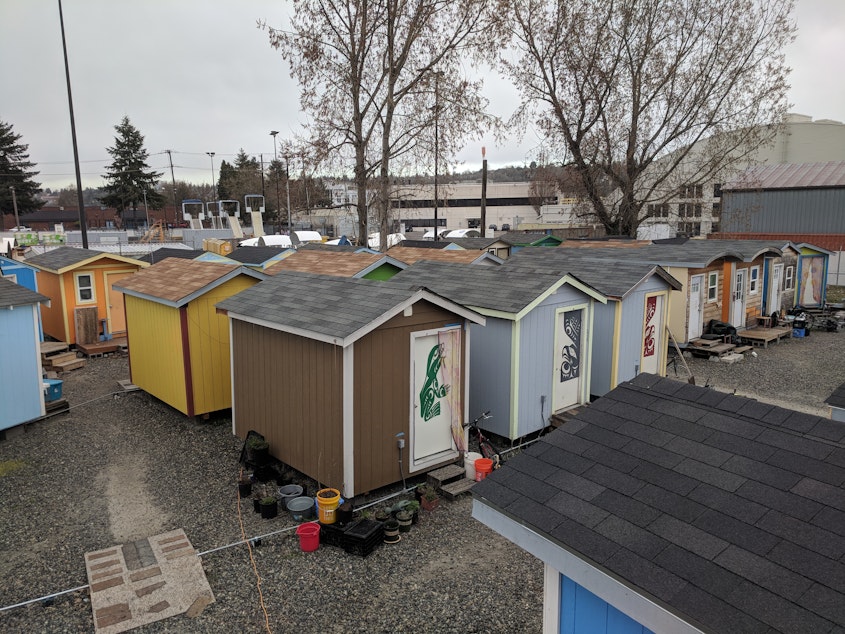Tiny house villagers get internet in Seattle

People living in tiny house villages in King County are getting an upgrade this summer: Fast, reliable internet service.
The Seattle Public Library and King County are donating Wi-Fi hotspots to help villagers get online without having to leave their tiny houses.
This month, Raven Village opened its tiny houses in Seattle's Ballard neighborhood. It has private rooms, a shared kitchen, onsite laundry, and a Wi-Fi hotspot for villagers to get online.
“We all know that everything — jobs, schooling, resumes, even the basic internet stuff that you have to do just to live, like bills, has to be done online,” said Joshua Goldman with the Low Income Housing Institute.
Reliable internet can be hard to come by, he said, especially at night when libraries and coffee shops are closed.
“Homeless shelters don't have Wi-Fi. We don't talk about it, but they don't,” Goldman said. “The Salvation Army has, like, a broadband system they can use, but at peak hours it's almost unusable.”
Sponsored
This summer, King County and the Seattle Public Library donated Wi-Fi hotspots to villages in Seattle and Tukwila.
“Installations are going great. We're actually talking about a village in transition right now, it's just coming into Seattle in the future here and already having it set up so that when they land the village becomes permanent we can offer them free Wi-Fi as well,” Goldman said.
He says internet access is essential for people trying to escape homelessness.
“Some individuals don't even have the basic stuff like a social security card and an ID,” he said. “Without internet, they can't get those things.”
Goldman says some villages had hotspots before, but the devices were not weather resistant and relied on batteries. The new hotspots are hard-wired and can support up to 20 devices at a time.
Sponsored
Most villagers living in tiny houses stay about six months.
Goldman says people can get discounted or even free Wi-Fi when they move into long term housing, “giving them the ability to have internet at home, either via hotspot that you buy at reduced rates, or internet at reduced rates, if not free.”
Two villages are still waiting on their hotspots, he said, but they’re set to be installed soon.
“We want to be able to give people, while they're in this transition of their life, the ability to better their lives.”


